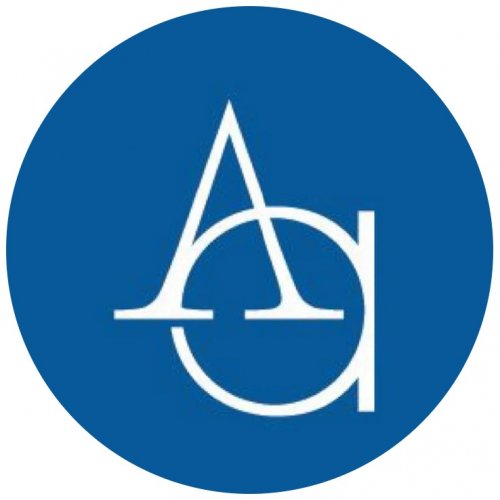Best Art & Cultural Property Law Lawyers in Juba
Share your needs with us, get contacted by law firms.
Free. Takes 2 min.
List of the best lawyers in Juba, South Sudan
About Art & Cultural Property Law in Juba, South Sudan
Art & Cultural Property Law in Juba, South Sudan is an emerging area of legal practice that deals with the protection, management, and repatriation of cultural and artistic heritage. This legal domain encompasses the rights and responsibilities related to cultural artifacts, artworks, and sites of cultural significance. As the country continues to build its legal framework, emphasis on safeguarding cultural property is growing, considering the rich history and diverse cultural heritage of South Sudan.
Why You May Need a Lawyer
There are several common circumstances where individuals might require legal assistance in the realm of Art & Cultural Property Law in Juba. These include disputes over the ownership of artworks or artifacts, illegal trafficking or exportation of cultural heritage items, and issues related to intellectual property infringement concerning artworks. Additionally, navigating governmental regulations and securing permits for cultural activities can also necessitate legal expertise.
Local Laws Overview
While South Sudan is in the process of developing comprehensive legislation for the protection of cultural property, several key aspects of existing local laws are pertinent. Laws like the Transitional Constitution of South Sudan include provisions for cultural preservation, albeit with limited specificity. There are key efforts underway to draft dedicated legal structures aimed at preventing the illicit export and trade of cultural items, and the recognition of indigenous communities' rights to their cultural heritage.
Frequently Asked Questions
What is cultural property under South Sudanese law?
Cultural property generally refers to items and sites of historical, artistic, and cultural significance, including artifacts, monuments, and traditions unique to South Sudan's diverse ethnic communities.
Are there any laws against the illegal export of cultural items?
Yes, South Sudan is working towards strengthening its legal framework to prevent the illicit export and trade of cultural heritage. Violating these laws may result in severe penalties.
How can someone prove ownership of an artwork?
Ownership can typically be demonstrated through documentation such as purchase receipts, provenance records, and, where applicable, inheritance papers.
Is there a process for repatriating cultural artifacts?
Yes, repatriation is a legal process that may involve negotiations and agreements between governments, institutions, and private entities to return cultural artifacts to their country of origin.
Can I display indigenous artworks in a private exhibition?
Yes, but it may require obtaining permits and ensuring that the display respects the rights and traditions of the indigenous communities associated with the artworks.
What should I do if I find an artifact?
If you discover an artifact, it is crucial to report the find to the local authorities or cultural heritage institutions to ensure its protection and proper documentation.
Why is protecting cultural heritage important?
Protecting cultural heritage is vital for preserving historical identity, fostering cultural pride, and ensuring the transmission of traditions and knowledge to future generations.
Can I sell cultural artifacts I inherited?
While you may have the legal right to sell inherited artifacts, it is important to ensure compliance with local and international laws that may regulate such transactions.
What role do international organizations play?
International organizations often provide frameworks, guidelines, and support for the protection and repatriation of cultural property and may assist in resolving disputes.
Where can I get assistance with Art & Cultural Property Law?
Consulting a lawyer with expertise in cultural property law is crucial. Additionally, reaching out to local cultural institutions and international organizations can provide additional support and guidance.
Additional Resources
For further assistance, consider reaching out to governmental bodies like the Ministry of Culture, Youth, and Sports in South Sudan. International organizations such as UNESCO and the International Council of Museums (ICOM) also offer valuable resources and guidelines on cultural property protection. Local cultural heritage organizations can provide country-specific insights and support.
Next Steps
If you require legal assistance in Art & Cultural Property Law, consider contacting a qualified attorney specializing in this field. Research local lawyers with expertise in cultural and heritage law, and schedule consultations to discuss your specific needs and circumstances. Engage with local cultural institutions and global organizations to gather information and support. It is essential to act promptly to ensure compliance with legal standards and the protection of cultural heritage.
Lawzana helps you find the best lawyers and law firms in Juba through a curated and pre-screened list of qualified legal professionals. Our platform offers rankings and detailed profiles of attorneys and law firms, allowing you to compare based on practice areas, including Art & Cultural Property Law, experience, and client feedback.
Each profile includes a description of the firm's areas of practice, client reviews, team members and partners, year of establishment, spoken languages, office locations, contact information, social media presence, and any published articles or resources. Most firms on our platform speak English and are experienced in both local and international legal matters.
Get a quote from top-rated law firms in Juba, South Sudan — quickly, securely, and without unnecessary hassle.
Disclaimer:
The information provided on this page is for general informational purposes only and does not constitute legal advice. While we strive to ensure the accuracy and relevance of the content, legal information may change over time, and interpretations of the law can vary. You should always consult with a qualified legal professional for advice specific to your situation.
We disclaim all liability for actions taken or not taken based on the content of this page. If you believe any information is incorrect or outdated, please contact us, and we will review and update it where appropriate.









